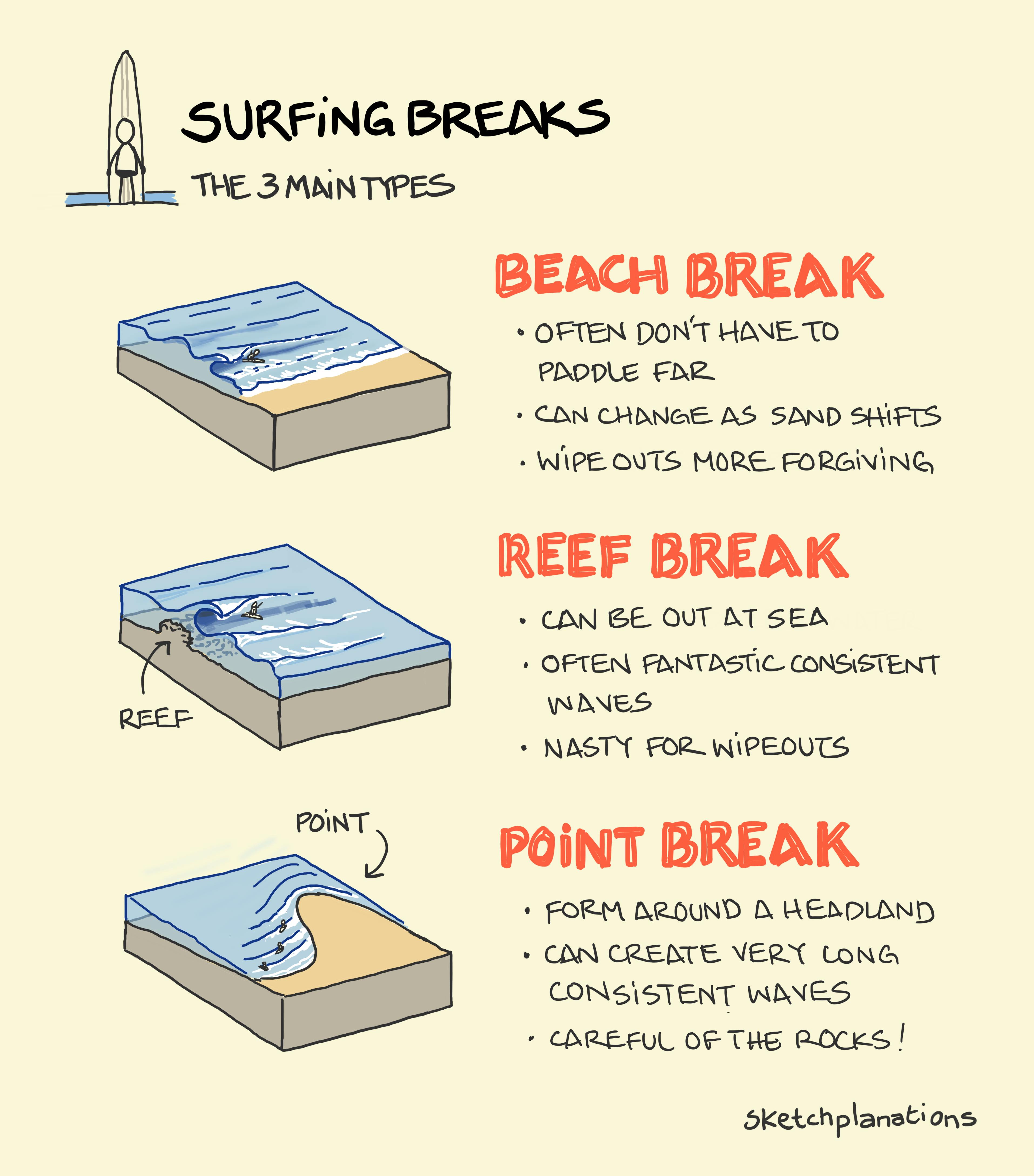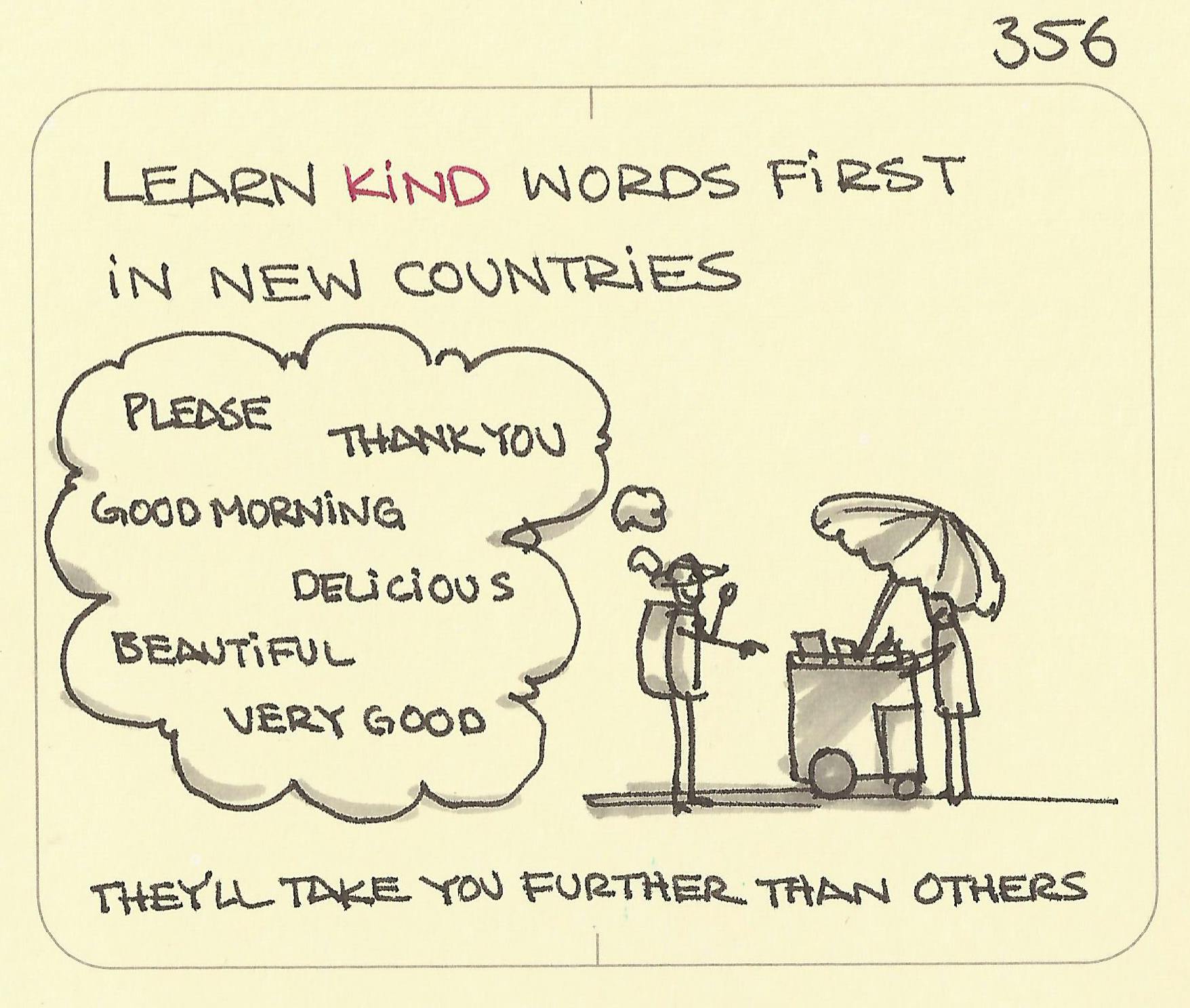

Sketchplanations in a book! I think you'll love Big Ideas Little Pictures

Prefer to listen?
Try the podcast
Like Sketchplanations?
Support me on Patreon
Explaining the world one sketch at a time


Thunder clouds
Thunder clouds are so impressive. Lightning forms due to air currents in the cloud as warm moist air rises up quickly. All the collisions between particles cause different charges to develop between the top and the bottom of the cloud. When that gets large enough, kapow! Also see: thunderclap or rumble, dirty thunderstorms.…Thunder clouds are so impressive. Lightning forms due to air currents in the cloud as warm moist air rises up quickly. All the collisions between particles cause different charges to develop between the top and the bottom of the cloud. When that gets large enough, kapow! Also see: thunderclap or rumble, dirty thunderstorms.WWW…
Read more…
Measures of central tendency: mean, median, mode
Very easy to forget the difference between the mean, the median and the mode. Mean: the average value. Median: the middle value of a list in ranked order. Mode: The most frequent value.…Very easy to forget the difference between the mean, the median and the mode. Mean: the average value. Median: the middle value of a list in ranked order. Mode: The most frequent value.WWW…
Read more…
Darwin’s 5 principles of Natural Selection
Reproduction. Excess. Variation. Selection. Divergence.…Reproduction. Excess. Variation. Selection. Divergence.WWW…
Read more…
The 3 Main Types of Surf Breaks Explained
Surfing is all about catching the perfect wave, and the type of surf break plays a big role in shaping those waves. Surf breaks are influenced by the seabed, coastline, and water depth. While no two waves are the same, surf breaks can generally be grouped into three main types: beach breaks, reef breaks, and point breaks. The 3 Types of Surfing Break 1. Beach Breaks Beach breaks occur where waves form over sandy bottoms near the shore. These are often the go-to for beginner surfers because the sand offers a softer, more forgiving landing compared to reefs or rocks. Another advantage is that you usually don’t have to paddle far to catch waves at a beach break. However, the wave conditions can vary frequently as shifting sands reshape the underwater landscape. 2. Reef Breaks Reef breaks are formed where waves break over a coral reef or rocky seabed. These can be located close to shore or further out at sea, depending on the reef’s position. Reef breaks are known for producing highly consistent and well-shaped waves, making them a favourite among experienced surfers. But be warned—wipeouts can be dangerous due to the shallow and sharp nature of the reef. 3. Point Breaks Point breaks form when waves wrap around a headland or rocky outcrop and peel along the coast. These breaks can create some of the longest, most rideable waves, often extending into a sheltered bay. The downside? Navigating rocks can be tricky, and the waves might require a bit more paddling effort. For surfers chasing long, clean rides, though, point breaks are hard to beat. I updated this sketch from the original hand-drawn version for my book Big Ideas Little Pictures Related Ideas to Surfing Breaks Also see: The Fun Scale The Three-Day Effect Beaches: amazing for play Strand line Anatomy of a wave Tectonic Plate Interaction Boundaries…Surfing is all about catching the perfect wave, and the type of surf break plays a big role in shaping those waves. Surf breaks are influenced by the seabed, coastline, and water depth. While no two waves are the same, surf breaks can generally be grouped into three main types: beach breaks, reef breaks, and point breaks. The 3 Types of Surfing Break 1. Beach Breaks Beach breaks occur where waves form over sandy bottoms near the shore. These are often the go-to for beginner surfers because the sand offers a softer, more forgiving landing compared to reefs or rocks. Another advantage is that you usually don’t have to paddle far to catch waves at a beach break. However, the wave conditions can vary frequently as shifting sands reshape the underwater landscape. 2. Reef Breaks Reef breaks are formed where waves break over a coral reef or rocky seabed. These can be located close to shore or further out at sea, depending on the reef’s position. Reef breaks are known for producing highly consistent and well-shaped waves, making them a favourite among experienced surfers. But be warned—wipeouts can be dangerous due to the shallow and sharp nature of the reef. 3. Point Breaks Point breaks form when waves wrap around a headland or rocky outcrop and peel along the coast. These breaks can create some of the longest, most rideable waves, often extending into a sheltered bay. The downside? Navigating rocks can be tricky, and the waves might require a bit more paddling effort. For surfers chasing long, clean rides, though, point breaks are hard to beat. I updated this sketch from the original hand-drawn version for my book Big Ideas Little Pictures Related Ideas to Surfing Breaks Also see: The Fun Scale The Three-Day Effect Beaches: amazing for play Strand line Anatomy of a wave Tectonic Plate Interaction BoundariesWWW…
Read more…
Learn kind words first in new countries
Learning and using kind words first when traveling will take you further than others. Before I enter a country with a new language, I write a list of these words and find out how to say them. It has served me well. Also, see be nice to tourists.…Learning and using kind words first when traveling will take you further than others. Before I enter a country with a new language, I write a list of these words and find out how to say them. It has served me well. Also, see be nice to tourists.WWW…
Read more…